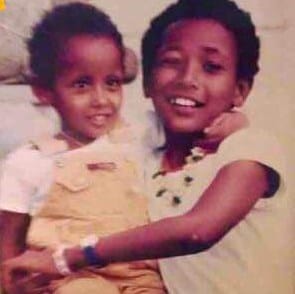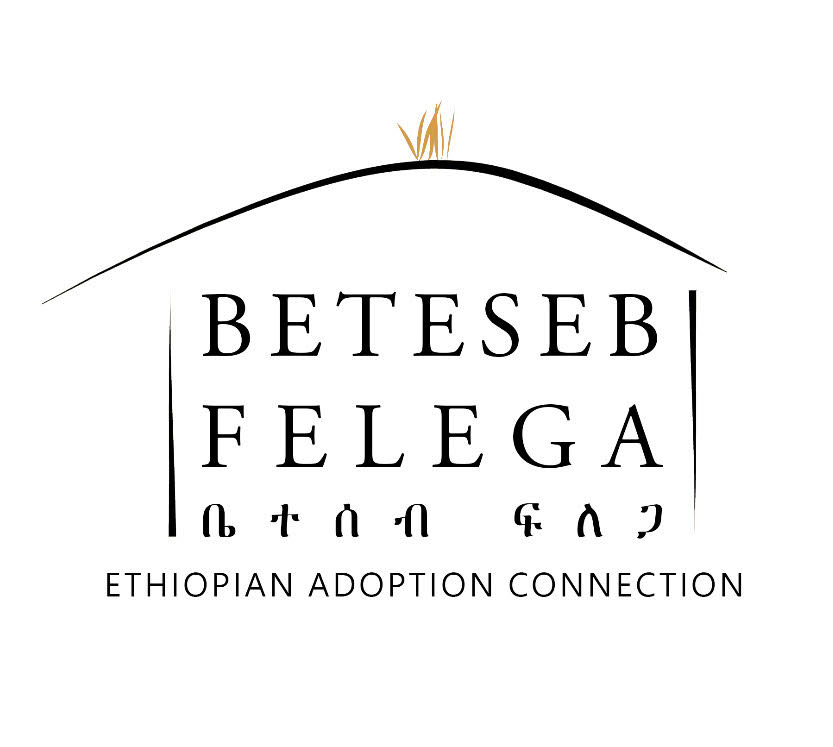There is sometimes apprehension from a segment of the adoptive parent community when it comes to contact with their children’s birth families. Some of this is due to not knowing how it works in the long term, realistically what the options are and where to start. I’d like to address here some of the biggest stumbling blocks to making that initial independent contact.
There are a multitude of reasons an adoptive parent may be anxious about opening up contact with the natural parents of their child. Some of these are myths with little basis in reality, but of course it’s hard to know what you haven’t experienced. The most commonly expressed anxiety inducing ideas fall into the category of opening the proverbial can of worms: the what ifs and buts. Some adoptive families simply believe there is no one to be found.
Let’s go through these one by one.
But, isn’t searching for birth family in Ethiopia illegal? This one is easy: no. See the Revised Family Code, Chapter 10, Article 183 for details on this.
But my agency said I have to go through them for contact. Another easy one: that’s not true. Again, see the Revised Family Code, Chapter 10, Article 183 for details on this.

But my child’s parents are both deceased, there is no one to contact. This one is also easy: search anyway. There are numerous (too many to count) cases of deceased parents being found alive.
But my child was abandoned and I was told there was no way to find anyone. Another easy one: search anyway. There are numerous (too many to count) cases of birth parents of abandoned children being found. Often times, the “finder” (the person who took the child to the orphanage) knows the child’s family or is a family member.
I already send yearly post placement reports through my agency. These don’t always filter down to birth families. Agencies don’t have the manpower to ensure every family receives them, and many agencies are closing their regional offices in Ethiopia, preventing families from retrieving them personally. Some agencies have shut down permanently and don’t even have offices in Addis anymore. Update: Ethiopian adoptions stopped in 2018, and there are almost no agencies left in Ethiopia (at least one big American agency works in Ethiopian domestic adoptions now).
But it’s so expensive! Yes, it is. But we owe it to our kids to support them, and it can be done on a budget. If travel is out of the question, sending photos and updates through social media is a great way to keep the door open. Your child can build on that as an adult.
Isn’t it up to my child to decide when to search and contact his parents? Some people feel this way, and for some adoptees it is extremely important that they be able to do this on their own. Yet with all of the ethical problems surrounding Ethiopian adoptions the last few years, and considering the fact that many people have little to no information to provide their children when they are old enough to search themselves, it’s our opinion that it’s justified to at least gather information and hold it for our children, for when they are older.
What if my child’s Ethiopian family ask me for money? Most adoptive parents who maintain contact with their children’s birth families report that no one ever asks them for money. If it happens, it’s probably not because they are trying to scam you. For Ethiopians living abroad, it is common to send money back home to their families. If you are asked for financial assistance, the most likely scenario is that they consider you family and they simply need some help. Another possibility is that they were promised help at some point during the adoption process, in which case they need to know that someone was not truthful with them.
What if I help them and it encourages others to place their children for adoption? Isn’t that unethical? Adoptive families who help their child’s family financially generally do not give so much aid as to make a significant change in the family’s social standing in their village. Update: this is a non issue since Ethiopian adoption closed in 2018.
If you want to help but do not feel comfortable doing it directly – maybe it feels too close to exchanging money for a child – there are numerous NGOs through which you can give to a community as a whole. There are actually some ethical issues with regard to this as well, such as the multitude of NGOs created by adoptive parents in areas that were harvested for adoptable children, but that is a topic for another day. Some adoptive families like to give to organizations with a mission to keep families together so that others will not have to face the despair of being separated from their children.
Are there some bad people in Ethiopia who just want your money? Sure there are. There are bad people everywhere. But most people are just average, complex people with day to day ups and downs, just like you and me.
What if I put my child’s mother in danger because she was an unwed mother or she is remarried and her husband doesn’t know about her adopted child? To be honest, we have rarely heard of this situation occurring, though people worry a lot about it. That is not to say it couldn’t happen. Because of this, it is extremely important to use an experienced searcher you trust who will contact your child’s family discreetly. Tell them your fears for the mother’s safety and make sure they will act in her best interest. In fact, use us! We are very experienced and trustworthy.
What if I find out my adoption was unethical? Unfortunately, this happens. If this is the case, it is even more important to have contact so you can figure out what happened. It is upsetting and you will lose sleep over it. But you will know. And your child’s family will finally have some peace knowing what happened to their child. It is an incredible gift you can give.
What if they want our child back? Adoption is a legal procedure that makes adoptive parents the sole legal parents of a child. There is virtually no way for birth family to get a child back. In cases where an unethical adoption occurred and adoptive parents have wanted to assist the child in returning to her family, it has been a legal quagmire and extremely difficult to accomplish.
My child doesn’t think about her birth family. Adopted children may feel uncomfortable talking with their adoptive parents about their birth parents. They may fear hurting feelings or causing anxiety. Bringing up the subject may make an adoptee feel disloyal to the family raising them. Whether they talk about it or not, it is guaranteed they think about them.
What if my child loves them more than me? You know how we tell our kids that there is enough love to go around, and that loves grows exponentially when there are more people to love? It’s like that for kids and all their parents, too! Try not to worry. They will still love you.
What if my child isn’t ready? I assume this applies most often to those parenting children with emotional issues, the idea being that it’s better not to add to problems the family is already dealing with. If a child is having emotional problems, it may actually help to communicate with their original family. Some children worry a lot about their relatives in Ethiopia even if they were too young to remember them. For an older child who remembers their family positively, I can’t imagine that they would not be ready for contact with their own family.
It can be complicated, and the simplest scenario is to make contact when the child is young so they grow up with it. On the other end of the spectrum, an adoptive parent may make contact on their child’s behalf and hang on to it until he or she asks.
I don’t mind communicating with them, but should I have to? No one has to do anything. You can do as much or as little as you feel comfortable doing. With adoption, adoptive parents have the right to decide how much contact to have with birth family and when/what to tell a child about their adoption. My personal feeling is that it is my responsibility to support my child in all aspects of their personhood, and that includes their lives before adoption. That said, there are many ways to handle contact, and it is fine to proceed slowly.
One last thought. This is something that breaks my heart. It makes me dizzy and a little queasy if I ponder it too long. Natural, first, original, birth families in adoption are going to be as kind and accommodating as possible with you. They want to know their children, or at least know how they are doing, and you are the gatekeeper. They are not likely to ask too much of you or treat you or their child badly. They are more afraid than you are.
Andrea
